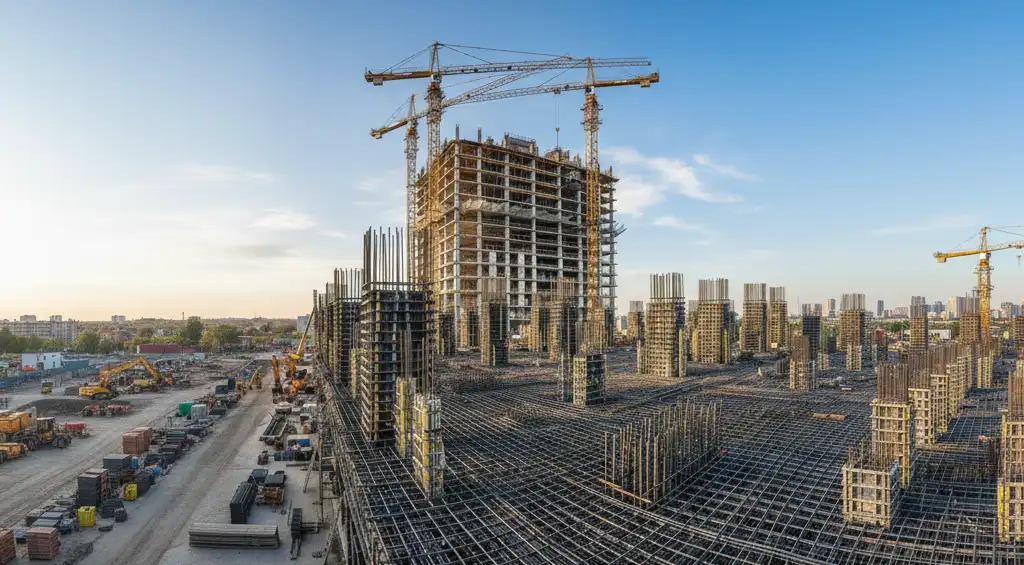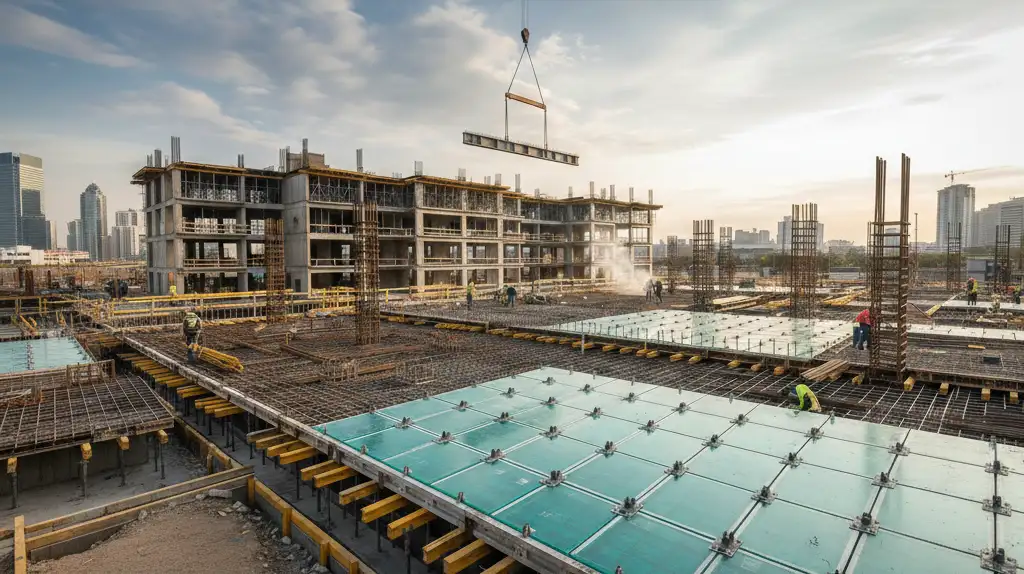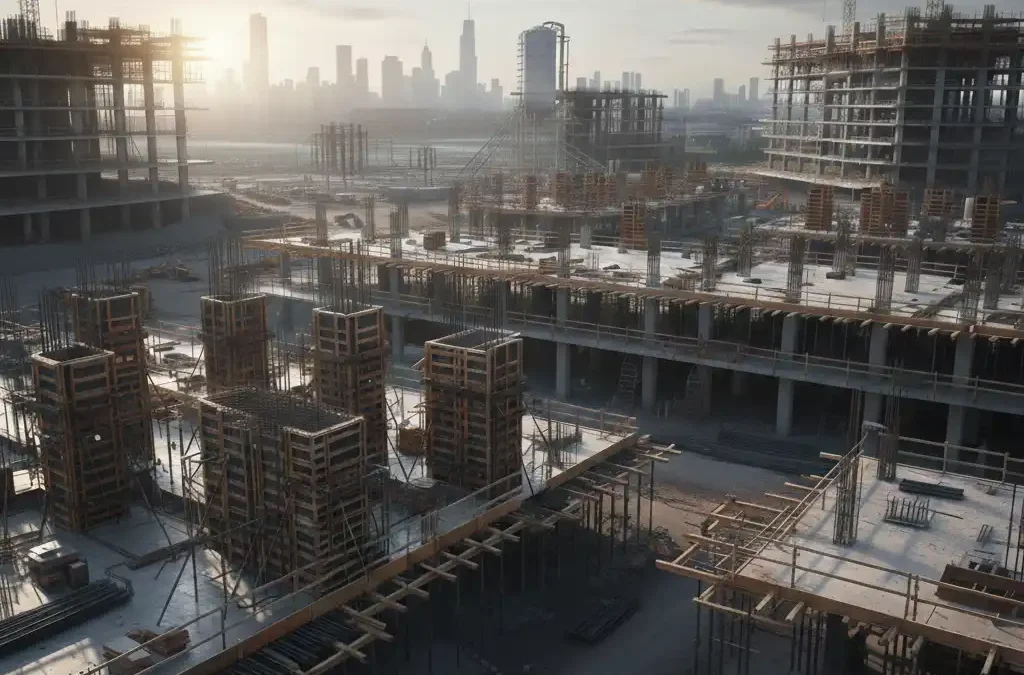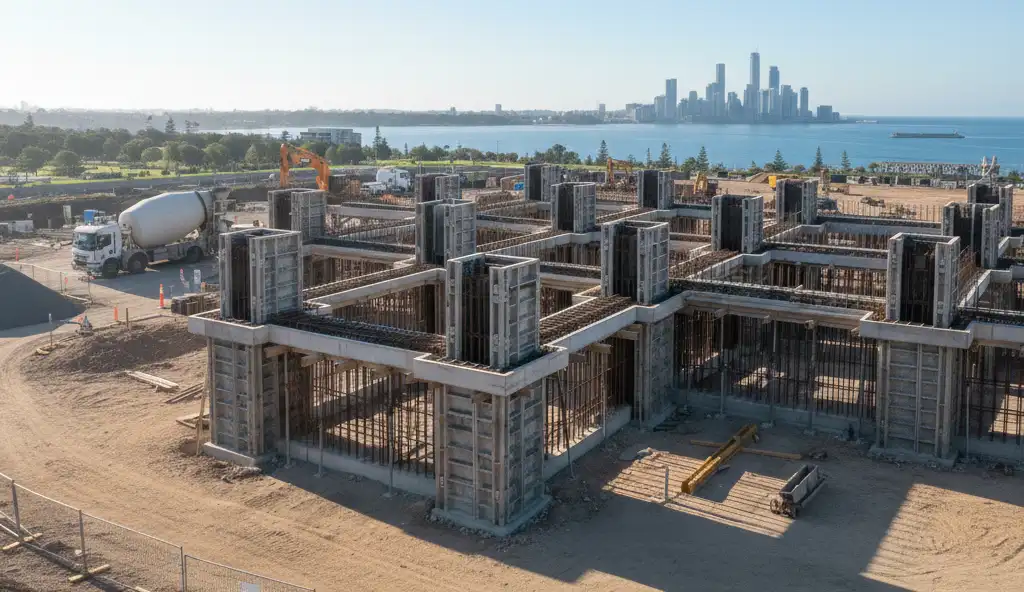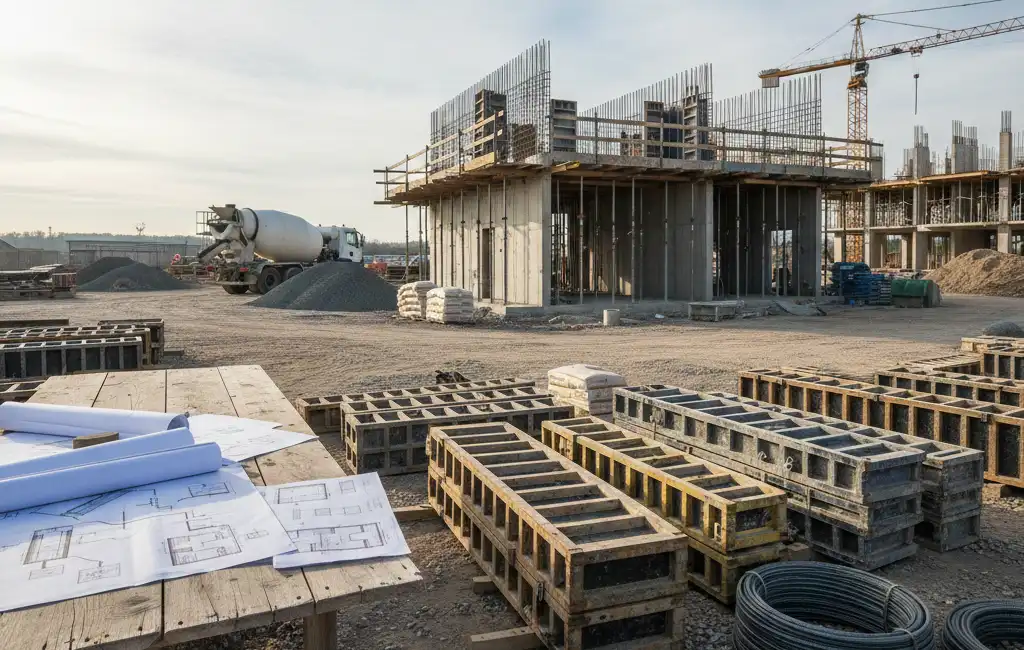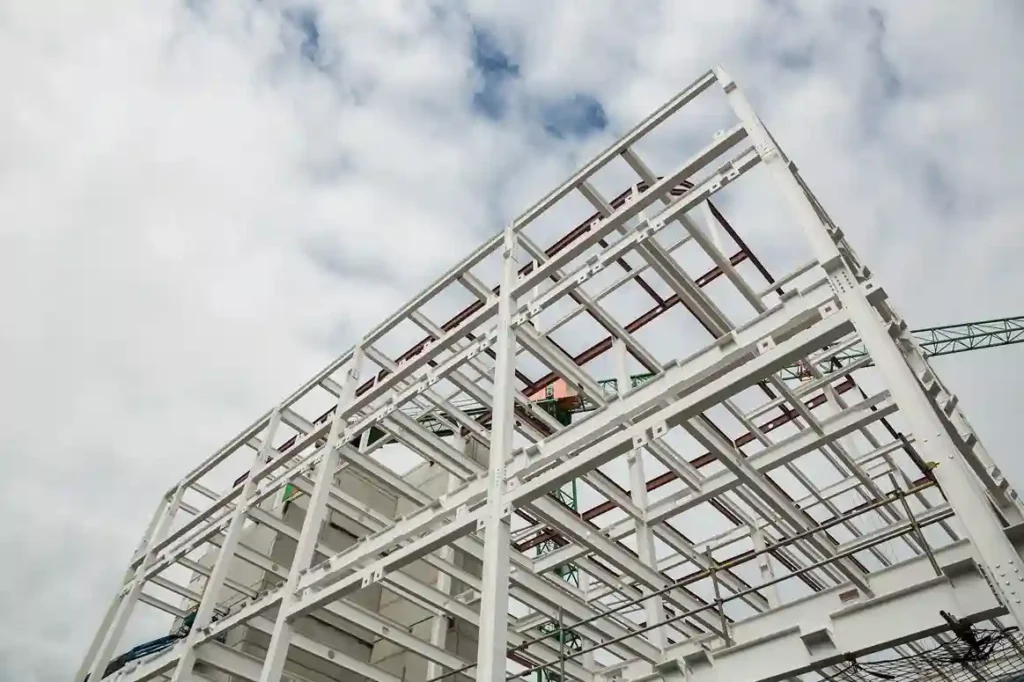
In 2025, the construction industry is experiencing a monumental shift, driven by economic pressures, a persistent labour shortage, and an urgent push for more sustainable building practices. Amid these challenges, one approach stands out for its remarkable ability to address them all—prefabricated (prefab) construction.
Once considered as a secondary option, prefab construction is now taking centre stage, offering developers, investors, and industry professionals a faster, more cost-effective, and sustainable way to build. At Future Form, we’re not just observing this transformation—we’re leading it. We’re proud to be part of this shift, supplying cutting-edge formwork and modular construction systems that deliver on time and on budget. So, here’s why prefab construction is the smart economic choice in 2025 and how it’s setting the stage for a new era in property development.
The Cost-Saving Edge: Why Prefab Construction Means Bigger Margins
Ask any developer or investor—nothing eats into profits faster than increased expenses and extended project timelines.These two issues are taken care of through prefab construction because it provides savings and operational efficiency across every stage of a build.
Reduced Labour Costs
The ongoing skills shortage across the construction sector has sent labour costs soaring. According to the Australian Bureau of Statistics (ABS), the construction wage price index for construction rose by 4.2% in 2024 alone. Budgets for traditional builds often exceed their limits due to reliance on massive onsite workforce as project cost frameworks are too lean.
Developers are able to build prefab construction because less skilled workers are needed, therefore the costs associated with accommodations, site logistics, and project supervision are greatly reduced. Value for money is obtained by having fewer team members while greater savings on wages are experienced along with lower quality diminished on build quality.
Shorter Project Timelines—Speed Means Savings
Change is constantly occurring in construction, making it a race against the clock. Time equals opportunity. For example, traditional projects frequently encounter supply chains as well as on-site coordination issues which results in troublesome delays alongside terrible weather. Unlike prefab construction which allow for off-site manufacturing as well as on-site preparation to occur.
Globally, prefabrication has been shown to reduce project timelines by up to 40%, allowing developments to hit the market sooner, generate faster rental income, and speed up settlement processes. That’s not only an operational win—it’s a financial advantage that directly improves return on investment.
The Hidden Economic Catalysts of Prefab Construction
Prefab construction’s economic advantages reach beyond the bottom line. It has a broader reach towards economic development, innovation in industries, and development of communities.
Increasing The Supply of Housing
With population growth and increased demand particularly in urban areas, prefab makes a significant difference due to its efficiency. Lower construction timelines support quicker provision of housing stock which helps ease market stress.
Stimulating Regional Manufacturing and Employment
The rise of prefab constructions supports advanced manufacturing hubs, often located in regional areas. These facilities create skilled jobs and stimulate local economies, providing long-term benefits beyond individual projects.
Sustainability and Cost Efficiency
The method of prefabricated construction compared to traditional ones can result in 90% less material waste (Green Building Council of Australia, 2024). Less waste produces lower disposal costs which result in a smaller environmental footprint. These are two crucial factors which increasingly matter to investors and buyers.
Shaping Spaces, Creating Possibilities
Behind every successful prefab construction project starts with a partnership built on trust, expertise, and a shared vision for something greater. While numbers tell part of the story—cost savings, faster timelines, improved return on investment (ROI)—it’s the ability to transform complex ideas into tangible spaces that truly sets a project apart and unique. This is where thoughtful collaboration makes all the difference.
At Future Form, we believe that each construction property project is given life through a clearly defined vision, one that surpasses the prevalent expectations in regard to encountering solutions rather than posing problems. With that in mind, we help clients unlock astounding levels of efficiency and profitability through:
- Tailored Modular Designs: Whether you’re building a boutique residential complex or a large-scale commercial project, our modular solutions are customized to meet each of their specific design and quality needs.
- Local Expertise, Global Standards: From economical viability to architecture outstanding, all prerequisites for a project to surpass expectations are extracted through combining the benefits of local manufacturing alongside international design trends and modern standards.
- End-to-End Project Management: From initial concept to final delivery, we streamline the entire process. Our dedicated project managers keep things moving smoothly, helping you avoid costly delays and overruns, and ensuring your vision is realised without compromise.
Also, here at Future Form, we’ve helped clients reduce project time frames by up to 40%, allowing developments to hit the market sooner, generate faster rental income, and speed up settlement processes. That’s not only an operational win—it’s a financial advantage that directly improves return on investment.
Case Studies: Prefab in Action with Future Form
At Future Form, we believe in building with purpose—and our portfolio is proof. Our work across some of the most visionary developments in the country showcases the versatility and economic impact of modern formwork and prefab solutions. Here are four standout projects:
Western Sydney Metro – Airport Terminal Station
Future Form is proud to contribute to the Western Sydney Metro project by delivering advanced formwork systems for the Airport Terminal Station. This critical infrastructure is set to become a transport hub connecting Greater Western Sydney with the future Western Sydney International Airport. Our involvement demonstrates our ability to meet tight schedules while delivering high-precision work for major public projects.
The Waterfront, Gosford – Premier Coastal Development by St Hilliers
As Gosford’s most anticipated coastal development, The Waterfront represents a modern mixed-use vision brought to life through smart construction methods. Future Form played a key role in shaping the formwork systems that support this landmark project, balancing design complexity with efficient delivery—underscoring the economic advantages of partnering with prefab specialists.
Wyvern Private Hospital
In this healthcare project, Future Form provided cutting-edge formwork solutions for Wyvern Private Hospital, a facility designed to offer advanced medical care to the community. The build demanded high levels of safety, precision, and scheduling coordination—criteria that prefab methodologies are uniquely suited to meet.
Australian War Memorial
Contributing to the expansion and redevelopment of the iconic Australian War Memorial, Future Form was entrusted with delivering reliable and structurally sound formwork. The project required sensitivity to heritage considerations alongside engineering excellence—a balance we consistently deliver through modern prefab systems.
These projects not only highlight our technical capability but also underscore how prefabricated and formwork-led construction can add tangible economic value, speed, and quality to projects of all scales and sectors.
Final Thoughts: Building Smarter, Not Harder
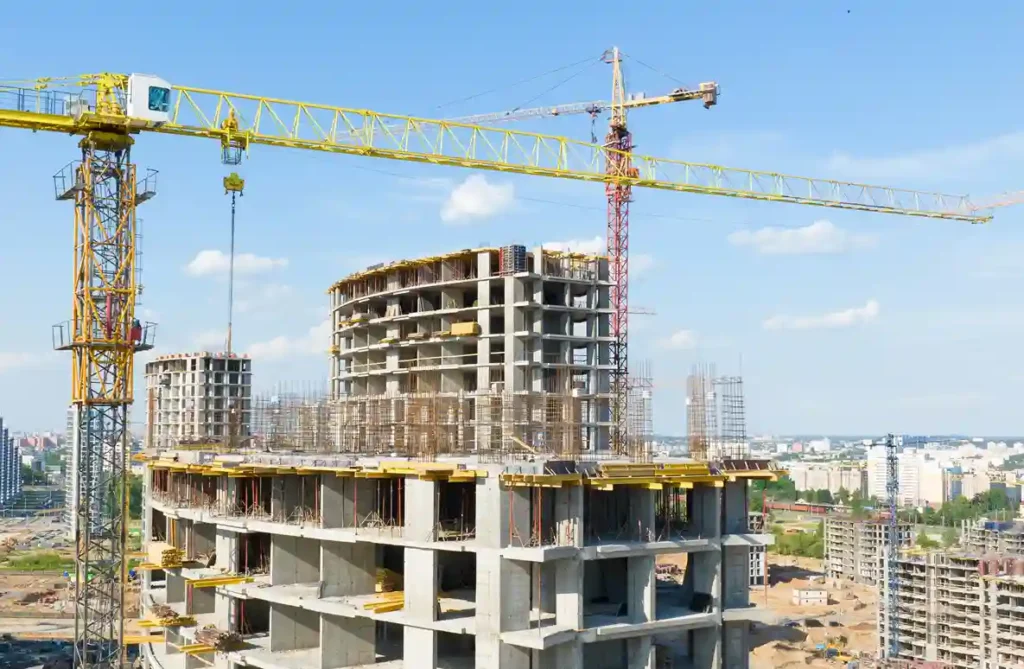
As we navigate through 2025, the construction industry is experiencing a turning point. Economic pressures, labour shortages, and the urgent need for sustainable development are pushing businesses to rethink traditional building methods. Prefabricated constructions have emerged as more than just a cost-effective alternative—they represent a smarter, future-focused way of delivering high-quality projects on time and within budget. From reducing material waste to accelerating project timelines and improving long-term financial returns, the economic impact of prefab construction is reshaping how we define success in property development.
At Future Form, we understand that behind every project lies a unique vision and a set of challenges waiting to be solved. That’s why we offer more than just modular products—we offer partnership, innovation, and tailored solutions that align with your commercial goals. Our team works closely with clients to design, manage, and deliver projects that don’t just meet expectations but redefine them. Whether you’re looking to streamline construction processes, explore sustainable design options, or enhance profitability through faster project delivery, Future Form is here to guide you at every step.
Explore how prefab can unlock smarter, more efficient solutions for your next project—remember, build smarter, not harder!
References
- Australian Bureau of Statistics. (2024). Wage Price Index, Australia, December 2024. Retrieved from https://www.abs.gov.au/statistics/labour/earnings-and-working-conditions/wage-price-index-australia
- Future Form. (n.d.). Future Form Formwork – Western Sydney Metro. Retrieved May 9, 2025, from https://futureform.com.au/future-form-formwork-western-sydney-metro/
- Future Form. (n.d.). Crafting Excellence: Future Form’s Role in The Waterfront, Gosford’s Premier Coastal Gem by St Hilliers. Retrieved May 9, 2025, from https://futureform.com.au/crafting-excellence-future-forms-role-in-the-waterfront-gosfords-premier-coastal-gem-by-st-hilliers/
- Future Form. (n.d.). Wyvern Private Hospital Project. Retrieved May 9, 2025, from https://futureform.com.au/projects/
- Future Form. (n.d.). Future Form Shaping Wyvern Private Hospital’s Cutting-Edge Infrastructure. Retrieved May 9, 2025, from https://futureform.com.au/future-form-shaping-wyvern-private-hospitals-cutting-edge-infrastructure/
- Future Form. (n.d.). Australian War Memorial Project. Retrieved May 9, 2025, from https://futureform.com.au/projects/
- Future Form. (n.d.). Future Form’s Formwork Project at the Australian War Memorial. Retrieved May 9, 2025, from https://futureform.com.au/future-forms-formwork-project-at-the-australian-war-memorial/
- Green Building Council of Australia. (2024). Prefab Construction and Waste Reduction Report. Retrieved from https://new.gbca.org.au/
- National Skills Commission. (2024). Employment Projections to 2026. Retrieved from https://www.nationalskillscommission.gov.au/

